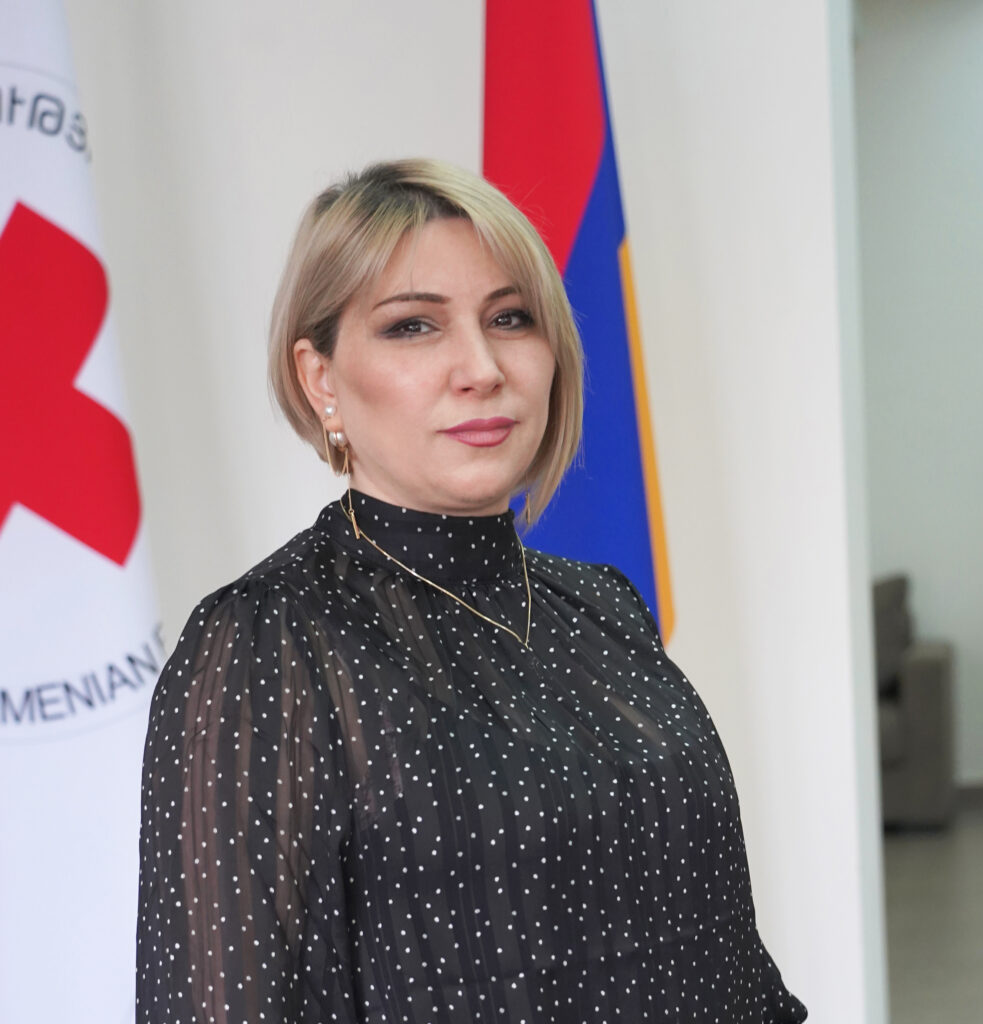“I am a psychologist and I have been working at the Armenian Red Cross Society since 2018. My main responsibility includes MHPSS coordination within the ARCS.՛՛
Mental health has an essential importance for maintaining physical health. Particularly, it becomes more crucial in and after emergency situations. Especially nowadays, after having faced so many challenges related to Covid-19 pandemic and geopolitical situation in the world, our population is significantly affected both mentally and psychologically. Mental health has an influence on every aspect of life; it affects our ability to cope, adapt, and solve problems. It also affects our ability to be resilient, productive, and well adjusted.
According to the International Federation of Red Cross and Red Crescent Societies Reference Centre for Psychosocial Support: “The main purpose of psychosocial support is to build resilience – to increase the ability to absorb shock and bounce back – and to help people to cope with and recover from a disaster or a critical event.
Experience also shows that early and adequate psychosocial support can prevent distress and suffering from developing into something more severe and helps those affected to cope better and readjust more quickly to everyday life. Volunteers are also exposed to trauma, loss, injury, they also need timely psychosocial support.”

Meet Armida Zakharyan
In the framework of the precursor project IPP, I have undertaken a number of responsibilities as the MHPSS expert from the Armenian Red Cross Society. Some of the main tasks are the following:
- Assist in development of research guideline for front-liners to find out the specific needs, challenges and gaps in providing MHPSS in crises and emergencies.
- Share knowledge, best practices, lessons learnt discussing challenges and considering gaps in service provision, establishing regional cooperation in the field of MHPSS with the aim of drawing greater attention to MHPSS needs.
- Enhance cooperation between the National Societies, other parts of the Movement and associated partners.
Front-liners, mainly healthcare professionals are affected by high levels of stress, burnout, and other mental health conditions. During a global health crisis, as working conditions are increasingly challenging, it is predictable that frontline workers will face an increase in psychological stressors.
Negative effects can ensue when the exposure to a stressor is prolonged or is particularly intense. Evidence supports the existence of a causal link between depression and negative life events. An important element to note is that the response to stress can vary widely between different individuals exposed to the same stressor. It is therefore essential to identify the factors that favor poorer outcomes in order to effectively target preventative measures.
It is therefore more urgent than ever to develop and implement effective strategies to prevent these outcomes in the future. Active coping mechanisms that prevent adverse psychological reactions can be taught and learned and may represent an essential element to incorporate in mitigating adverse mental health outcomes on front line workers in the future.